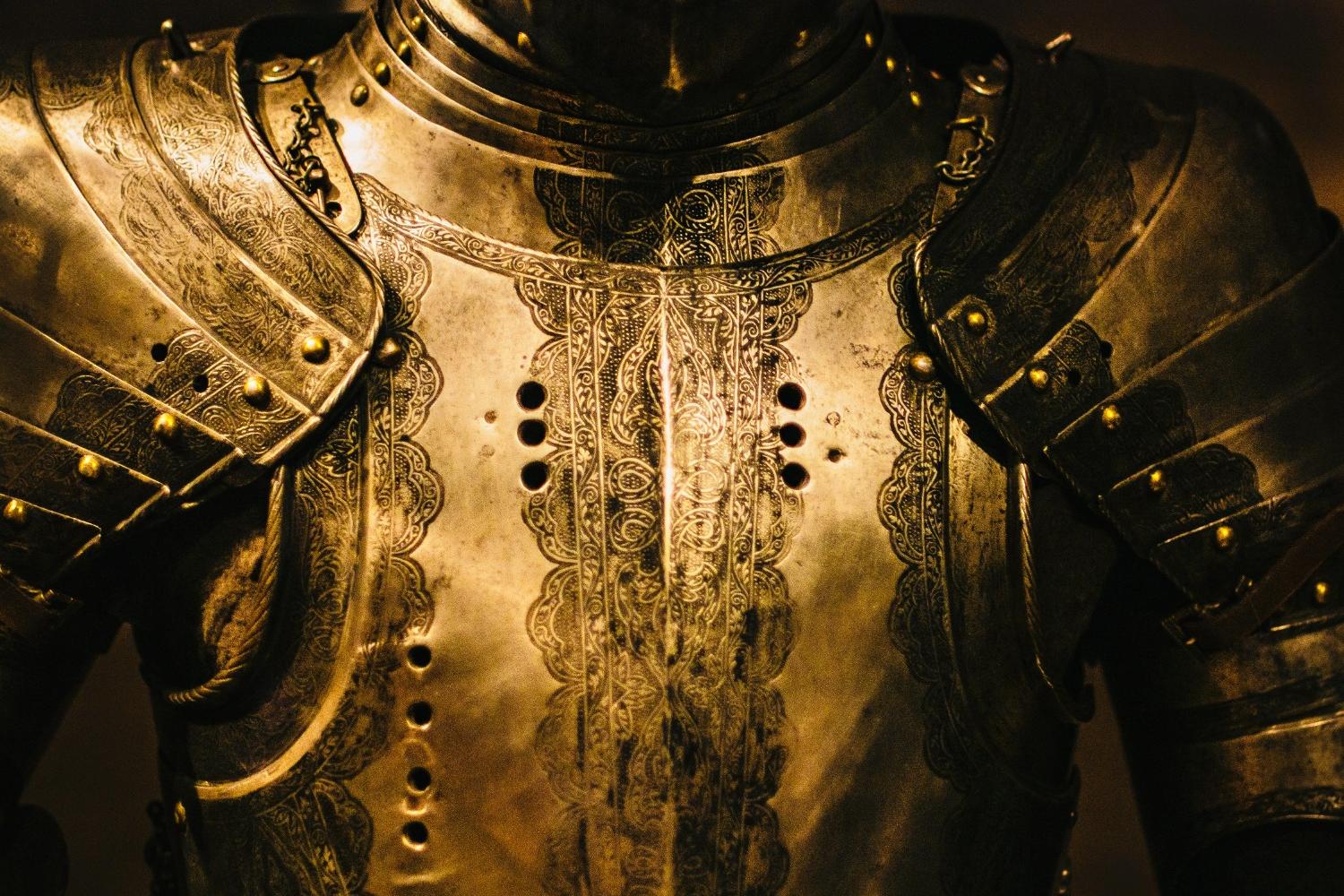
“By worthy deeds in every folk is a man ennobled” (Beowulf).
The past forty years have seen a massive shift, for good and for ill, in our understanding of manhood. I recently re-watched Top Gun with my eight-year-old son. I was struck when Tom Cruise’s character held back his tears after his best friend died. I got into a conversation with my boy about how things have changed.
I worry about many of the changes in our perception of manhood. Is there no distinctively masculine approach to bravery, to discipline, to provide for one’s family? Most of us are repelled by the depictions of lecherous corporate men of the 1950s and their wives’ quiet lives of desperation found in shows such as Mad Men.
Where, then, can we go for a model? Is there nothing other than the machismo of the past and the image of the emasculated men of today? An author from the twentieth century may help us here. Evelyn Waugh’s World War II The Sword of Honour trilogy (1952-1961) avoids both pitfalls and presents a view that is strikingly in line with the apostle St. Paul.
Guy Crouchback, the protagonist, is a wealthy Englishman. At the beginning of the novel he is childless, middle-aged, and a cuckold. When the novel opens in the late summer of 1939, we learn that Guy’s beautiful wife had left him for another man about a half dozen years ago. As a Catholic, Guy cannot remarry and has spent those years loafing about at his family’s summer home in rural Italy. Guy loved his wife and, as she moves from husband to lover to husband, feels the shame of the cuckold’s horns. His family has held the same manor since the twelfth century and Guy is resigned to what he perceives as the dishonor of ending the male line.
At the end of August, Guy hears of the Soviet-German alliance, an alliance of two godless mass-murdering nations in the heart of what was once Christendom. War is imminent and Guy sees an opportunity to shake off his acedia and shame, and of winning honor in battle. This is his view of manhood and it might seem familiar. We even see some version of this in Ephesians 6:11: “Put on the whole armor of God.” We will learn in the course of the trilogy that St. Paul has a different understanding of this than Guy did at the beginning of the story.
Guy joins the Halbediers, an honorable regiment with a storied history. As Guys grows into a soldier he begins to disdain those who are not brave men such as he hopes himself to be. He reflects on the soldier-gym instructor who has been trained in modern physiology: “This man would never fight, Guy thought. He would stay in his glaring shed, rippling his muscles, walking on his hands, bouncing about the boards like an india-rubber ball, though the heavens were falling.”
Guy believes that, like the medieval knight Sir Roger of Waybroke, he will attain honor by heroism in battle.
As his training progresses Guy meets and comes to be in awe of Brigadier Ritchie-Hook, an audacious soldier who lost most of a hand and an eye by bravely (recklessly?) running into enemy lines during World War I. Guy begins to make judgments about various soldiers he encounters: Hook is the epitome of soldierly honor; Trimmer is a cowardly, sniveling buffoon; Apthorpe follows rules rather than think independently; de Souza is disillusioned; and Ivor Claire, a wealthy, attractive young aristocratic soldier who earned a Victoria Cross for bravery, exemplifies the virtue of soldiering and attains honor by it. Guy, like all of us, learns what it is to be excellent at something, or at life in general, by avoiding those who fail at it and imitating those who excel.
As the novel progresses, however, Guy becomes disillusioned with both army life and the war. He is at first shocked by the cowardice, incompetency, and lack of purpose he sees in those around him. And yet he clings to the images of Hook and Ivor Claire as he goes into a bumbling beach raid and later endures the retreat of the British army from Crete. But in Crete he discovers that Ivor Claire is a fraud and a coward.
Ivor, his men, and Guy and his men, were ordered to defend the retreating soldiers and then surrender to the Germans the next morning (or find a way to flee themselves). Ivor intends to shirk his orders and slip away. At night Ivor asks Guy what he would do if he were challenged to a duel and Guy responds “Laugh.” Ivor responds:
Ivor, as you might guess, slips away in the night and boards a troop ship without his men, all of whom are killed or taken prisoner. Guy escapes, honorably, after having defended the retreating army and becomes thoroughly disillusioned with the honor of a soldier.
Later Guy comes to realize that Ivor and Hook, in different ways, lack what he has learned is the key to honor:
Two years earlier Guy had tried to seduce Virginia, having been told that, as his wife, even if estranged, it would not be a sin to sleep with her. She rebuffed him and assumed he was still in love with her, or at least desired her. Now, near the end of the trilogy, hearing that he has inherited his father’s great wealth, she comes back to him, hiding her pregnancy, and attempts to seduce him and convince him that the child is his. Guy, who is not in love with her and incapable of being seduced due to a broken leg, is not deceived. Virginia then shares her predicament with him. We don’t know with what words Guy responded, but we learn that he agreed to take her back and to take the child as his own.
The next day Guy and Virginia’s friend Kerstie Killbannock have a conversation that is at the heart of the question:
It was no good trying to explain, Guy thought. Had someone said: “All differences are theological differences”? He turned once more to his father’s letter: Quantitative judgments don’t apply. If only one soul was saved, that is full compensation for any amount of “loss of faith.”
In the end Guy does find a specifically manly honor, like the knight errant he had been as a soldier. But this is something he did not seek. It was given to him. It is not heroism in battle. It is something the world sees as dishonorable. And yet, this act of, in Flannery O’Connor’s words, passive diminishment, is the most honorable deed in Guy’s life - more honorable than obeying orders and risking his life in Crete. It is not the will to win we see in ambition. It is not the logic of the world: “For the word of the cross is foolishness to those who are perishing, but to us who are being saved it is the power of God” (1 Corinthians 1:18).
Guy, I think, would not have been able to make this sacrifice, do this heroic deed, had he not been prepared by following another model of manhood - the warrior. The sacrifice, bravery, discipline, and obedience of the warrior are real virtues. God has used these virtues of the military to form Guy as a Christian. But ultimately the warrior’s battle is sublimated to a spiritual battle:


